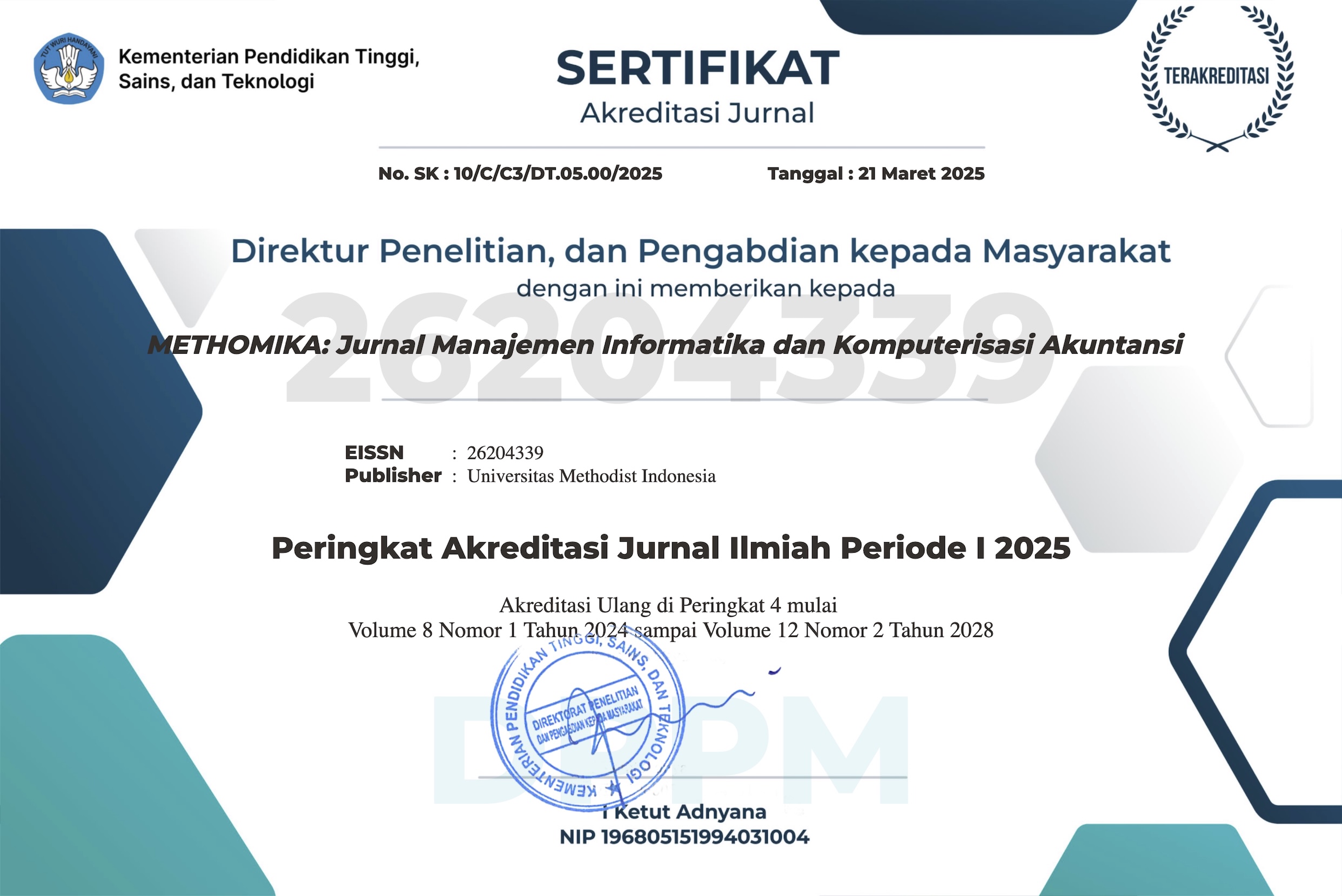PREDIKSI HARGA KELAPA SAWIT MENGGUNAKAN METODE REGRESI LINEAR BERGANDA
Studi Kasus PT. Bakrie Sumatera Plantations, Tbk.
DOI:
https://doi.org/10.46880/jmika.Vol8No1.pp89-95Keywords:
Linear Regression, Price Prediction, Bakri PlantationAbstract
Indonesia's plantation sector, especially palm oil, has a high selling value and its attractiveness continues to increase. The price of palm oil is strongly influenced by external factors, especially the price of crude oil (CPO) and palm oil production globally. Unstable price fluctuations have become a challenge for companies such as PT Bakrie Sumatera Plantations, Tbk. in planning harvest time and optimizing profits. To overcome this uncertainty, this study proposes the use of the Multiple Linear Regression method to predict palm oil prices. Price and production data from 2021 to 2023 are the main basis for developing the prediction model. In this study, 4 independent variables were used, namely year, month, oil price and total production. The amount of data used in this study is 33 data. In testing the Multiple Linear Regression method has an RMSE value of 0.24 and the predicted value of palm oil prices from January to December 2024 is the price of palm oil with the highest value in January 2024 of Rp. 2,276.931 / kg and with the lowest value in December 2024 of Rp. 1,474.75 / kg.
Downloads
Published
Issue
Section
License
Copyright (c) 2024 Agnes Lasmaria Eliza, Darwis Robinson Manalu, Margaretha Yohanna

This work is licensed under a Creative Commons Attribution-NonCommercial 4.0 International License.













